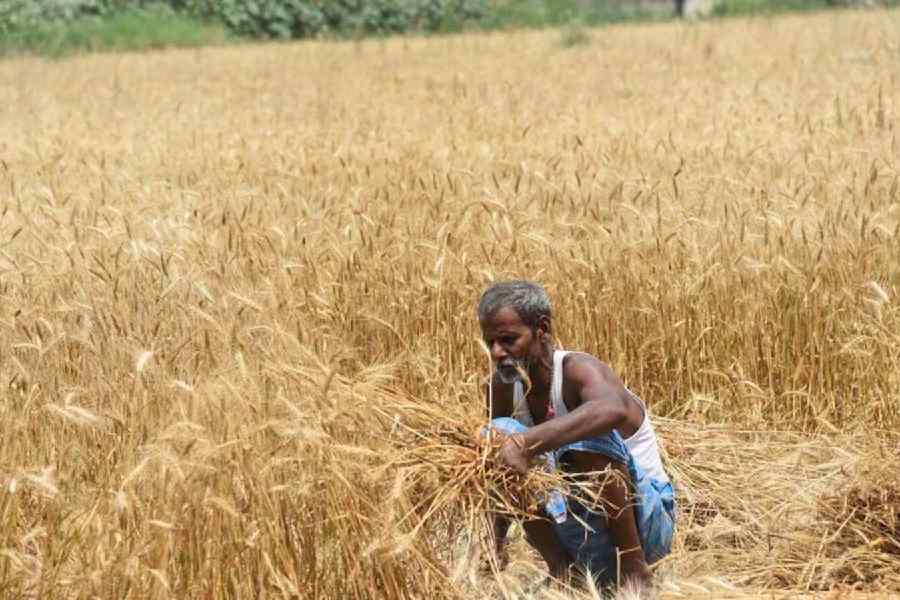The increase in maximum temperatures will not have any impact on the harvest-ready wheat crop, the IMD said on Monday.
India is set to experience extreme heat during the April to June period, with the central and the western peninsular parts expected to face the worst impact, India Meteorological Department (IMD) Director General Mrutyunjay Mohapatra said.
However, there is no heatwave warning for wheat producing states, except Madhya Pradesh, he said.
"Temperatures are around 37-40 degrees Celsius in Madhya Pradesh at present and are likely to go up to 42 degrees next week. Since 90 per cent of the wheat harvesting in the state is over, there will be no effect," he said.
Even if temperatures go above 35 degrees, there will be no impact in Punjab, Haryana and Uttar Pradesh, he added.
India produced 1,105.5 million tons of wheat during 2022-23. Of this, Uttar Pradesh accounted for 30.40 per cent, Madhya Pradesh 20.56 per cent, Punjab 15.18 per cent, Haryana 9.89 per cent and Rajasthan 9.62 per cent.
An early onslaught of heat waves impacted production in India in 2022, prompting the country, the world's second-largest wheat producer, to ban exports.
The wheat crop is sown in October while harvesting in most parts begins around April.
The maximum temperatures are likely to rise gradually by 2-3 degrees Celsius over many parts of the country during the next week.
Temperatures are very likely to be above normal by 2-3 degrees Celsius over many parts of north India and the east and the west coasts and near normal over the rest of the country.
Except for the headline, this story has not been edited by The Telegraph Online staff and has been published from a syndicated feed.










